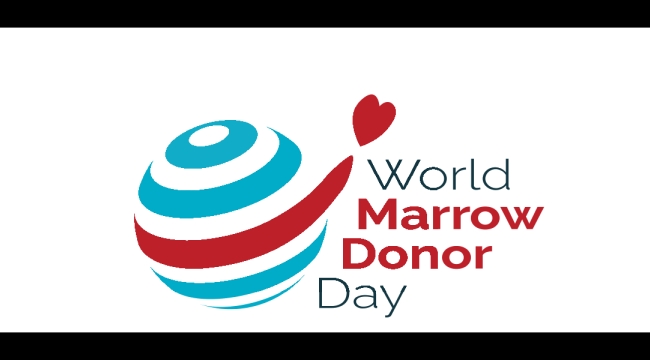Dr. Isra Levy appointed to Order of Ottawa
After years at the helm of Ottawa Public Health, he’s now driving innovation at Canada’s Lifeline and guiding our pandemic response
Dr. Isra Levy, Canadian Blood Services’ vice-president of medical affairs and innovation, was inducted into the Order of Ottawa by Mayor Jim Watson at a special ceremony on Nov. 18.
Dr. Levy has deep roots in the city, where he has lived for three decades. He served as its chief medical officer of health for nearly 10 years before joining Canadian Blood Services in early 2018.
The award, now in its 10th year, recognizes Ottawa residents for outstanding professional achievements and service in a number of spheres.
“I’ve looked at some of those names over the years and thought ‘wow, those are accomplished people who have really had an impact and made a contribution,’” says Dr. Levy, who was previously honoured as Physician of the Year by the Ottawa Academy of Medicine. “It’s a little humbling to be in their company.”
Dr. Levy was also the founding director of the Office for Public Health at the Canadian Medical Association, where he helped launch a mental health support network and advocated for enhancement of mental health services. Later, during his tenure as Ottawa’s chief medical officer of health, he guided the City of Ottawa toward decisive action on issues around addiction, including the creation of its first supervised drug injection site in fall 2017.
Dr. Levy also remains proud of Ottawa Public Health’s effort to deliver what was ― at the time ― the largest mass-vaccination campaign in the city’s history, during the 2009 H1N1 influenza pandemic. That crisis also marked an important shift in the way the department communicated with the public.
During the current pandemic, Ottawa Public Health has regularly been singled out for its clever use of social media, but the very first tweets from its now-celebrated Twitter account went live in fall 2009, on the topic of H1N1 vaccine clinic schedules and wait times.
But Dr. Levy doesn’t take credit for the department’s embrace of social media. As is his wont, he prefers to highlight the power of the team ― and in this case, the talented communications advisors on that team who pushed a new approach.
“I didn’t have a clue,” Dr. Levy jokes. “I just said to them, ‘Go!’ But I am proud that I did say ‘go.’”
Guiding us through the COVID-19 pandemic
A decade later, Dr. Levy would find himself helping to lead a very different organization through a pandemic. He had been with Canadian Blood Services a little less than two years when the first reports of COVID-19 emerged in December 2019.
“I think like all organizations, we have been challenged in ways we never expected to be challenged,” he says.
Very early, Dr. Levy teamed up with Judie Leach Bennett, Canadian Blood Services vice-president, general counsel and chief risk officer. Together they have co-led the organization’s COVID-19 response. This has included work to ensure appropriate access to vaccines for staff as they became available, and later, the development of a COVID-19 vaccination policy for employees. But from the earliest days, it has also been about setting protocols to prevent the spread of illness at our sites, as well as working to avert blood shortages.
“The team that I work with gathers the intelligence as to what our forecast is for blood utilization,” Dr. Levy explains. “The pandemic created a highly volatile situation. Generally, we’ve got a very predictable call on blood products in this country, at least at the national level. But understanding the local dynamics and influencing the local dynamics is a significant challenge for the team of physicians and others on our medical affairs and innovation team.”
Canadian Blood Services has continued to meet the needs of patients despite the pandemic, and for that, Dr. Levy is proud of his colleagues in medical affairs and beyond.
“If you look at the United States, there have been major challenges with blood supply,” he says. “Canada just hasn’t run into those challenges. And there are many, many people across the organization that can be thanked for that.”
Making the blood system more inclusive
As head of medical affairs and innovation, Dr. Levy also leads the researchers and physicians who continuously evaluate our criteria for donation. From the earliest days of the pandemic, they’ve worked diligently to develop and refine COVID-related questions for potential donors, to ensure the safety of both the blood supply and all those visiting or working at our centres.
Other work to make the blood system as inclusive as possible has also continued despite the challenges of COVID-19. People with type 1 diabetes became newly eligible to donate blood, and short-term travelers to malaria risk areas now enjoy a reduced wait to donate blood and platelets upon their return.
More recently, in September 2021, Health Canada approved our request for some gay, bisexual and other men who have sex with men to be able to donate plasma at select donor centres. Our ultimate goal is to remove the current three-month waiting period for men who have sex with men, and to use sexual behaviour-based screening for all donors instead. We intend to make a submission recommending this change to Health Canada, our regulator, by the end of 2021.
“I’m proud of the scientific excellence the team brings to assessing all the restrictions,” says Dr. Levy. “That’s what enables us to be as minimally restrictive as possible about who can donate, within what’s a pretty rigorous regulatory process.”
Looking to the future
Dr. Levy is also using his leadership position to help drive research and innovation in other areas, as well as scanning the horizon for future threats. He and his colleagues have their collective eye on climate change ― a phenomenon that could affect operations in so many ways, including by changing the epidemiology of infectious diseases spread through blood.
“We need to be looking around corners in very significant ways, and developing contingencies and mitigation measures for the various scenarios,” he says.
Other research happening across Canadian Blood Services, in different stages of development, inspires brighter visions for the future. These include projects to explore greater automation in the manufacture of blood components, as well as the potential for freezing platelets ― a component of blood where a short shelf life poses constant challenges for managing supply. Even the potential use of drones for delivering blood to hospitals is on the horizon.
“It’s such a wealth of excitement,” says Dr. Levy. “There are honestly some days I feel like a kid in a candy store.”
Order of Ottawa ‘a fitting tribute’
Dr. Graham Sher, CEO of Canadian Blood Services, calls the Order of Ottawa a fitting tribute for a physician whose career he has watched from a distance as well as up close, from across the leadership table.
“As a friend, colleague and fellow Ottawa resident, I have long been aware of Isra’s leadership in this city,” says Dr. Sher. “I’m glad, thanks to this celebration and honour, that even more will now know about his tremendous expertise and knowledge.
“So many of us have benefited from Isra’s decades-long career in this city. The Order of Ottawa is a well-deserved acknowledgement of his compassionate and vital contributions to Ottawa and beyond.”
Dr. Levy recalls how he and his wife, Jacquie, were “just kids” when they left their home country of South Africa, with stops in England and three different Canadian provinces before they settled in Ottawa to pursue careers and raise a family. He’s caught off guard by a surge of emotion as he ponders the experience of this honour by his adopted city.
“It’s just tremendous,” he says.



